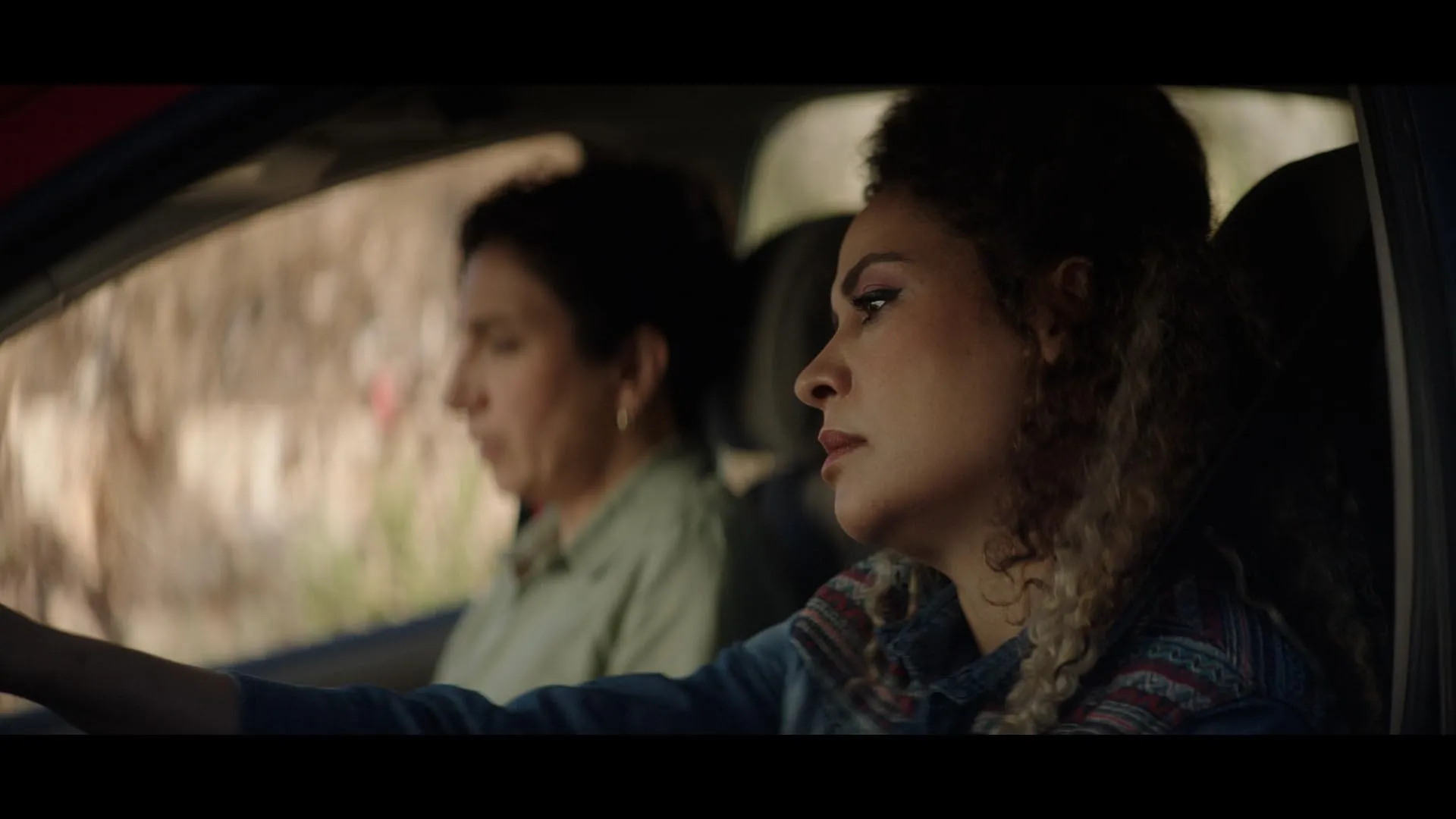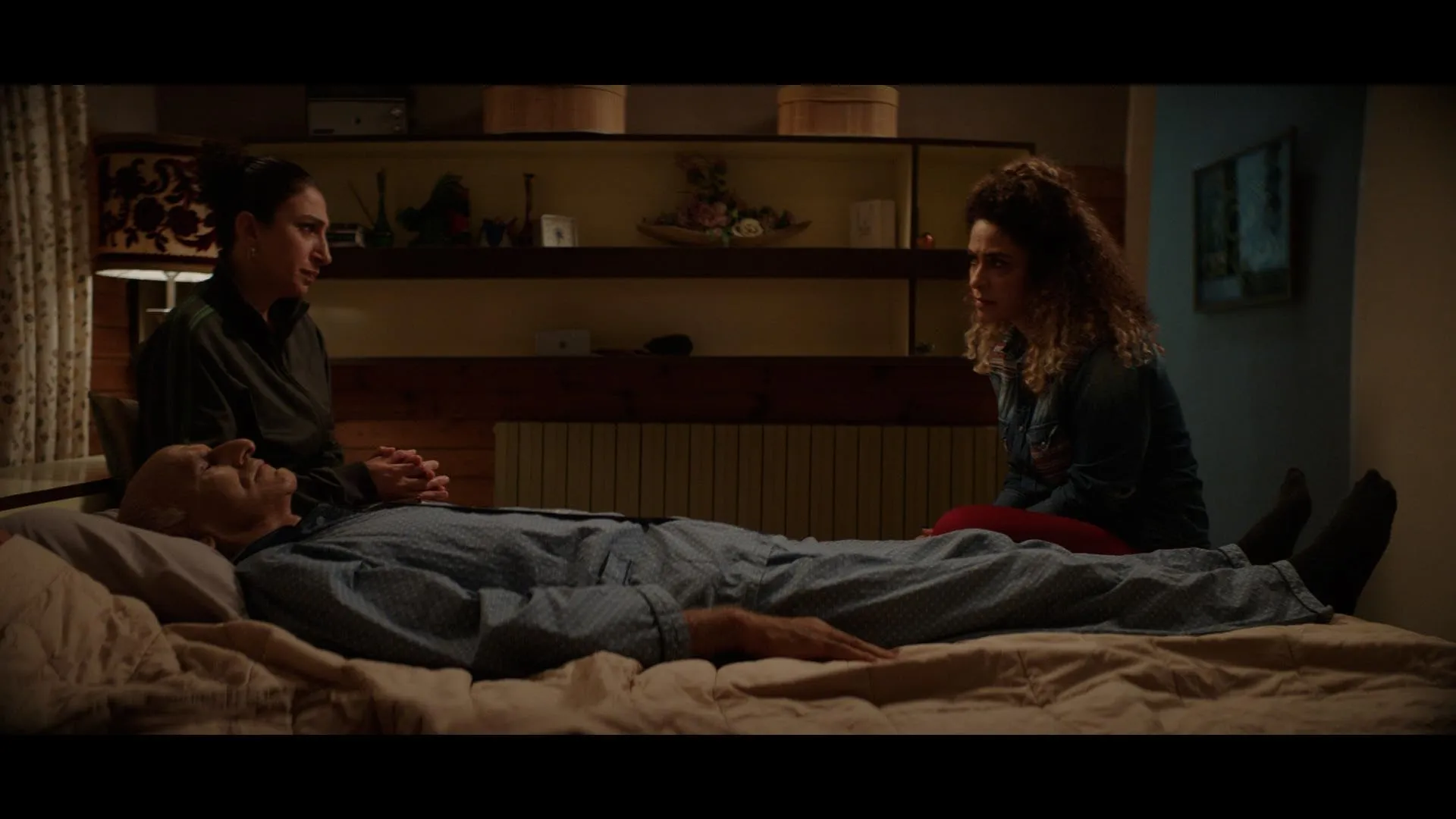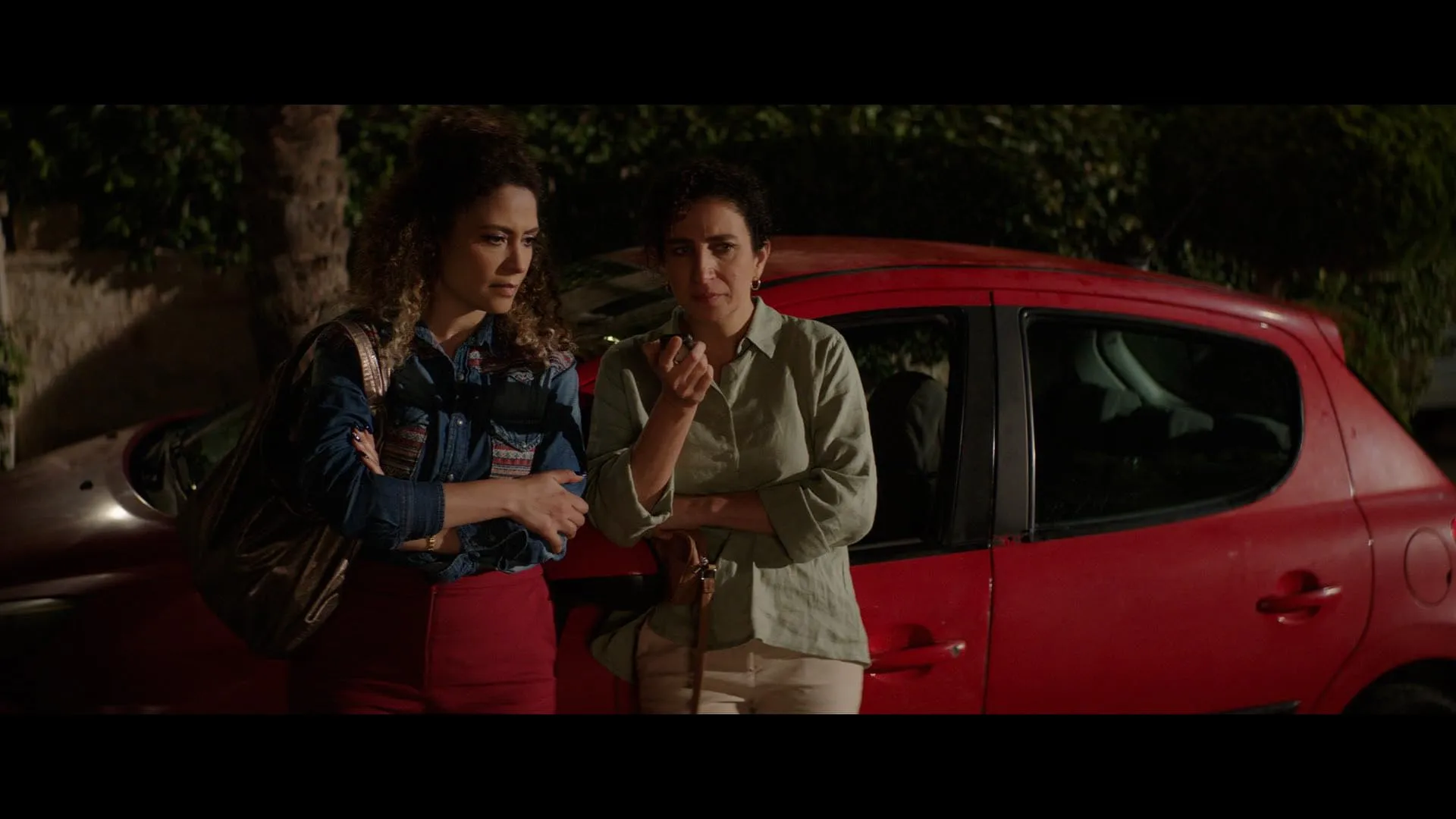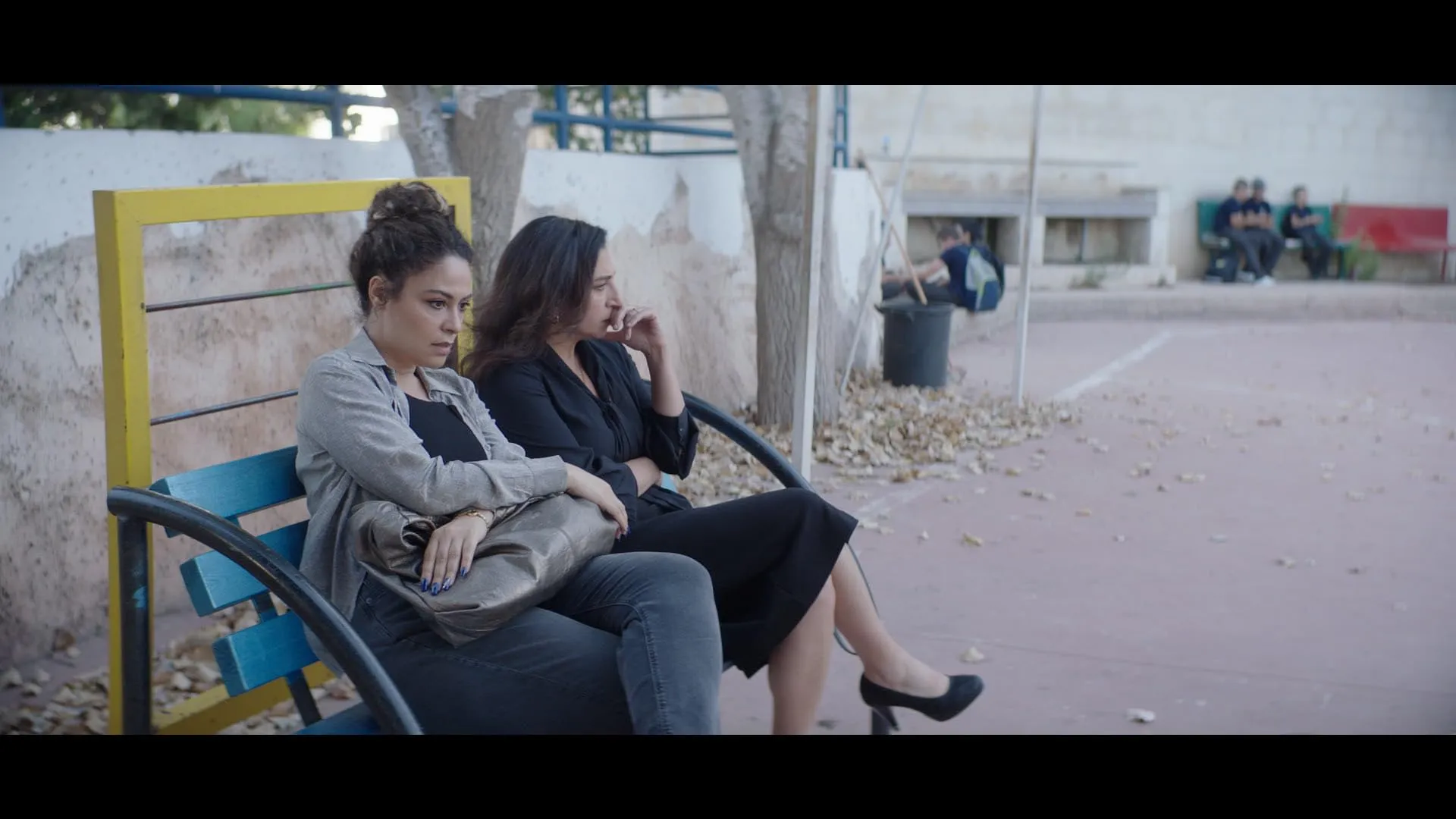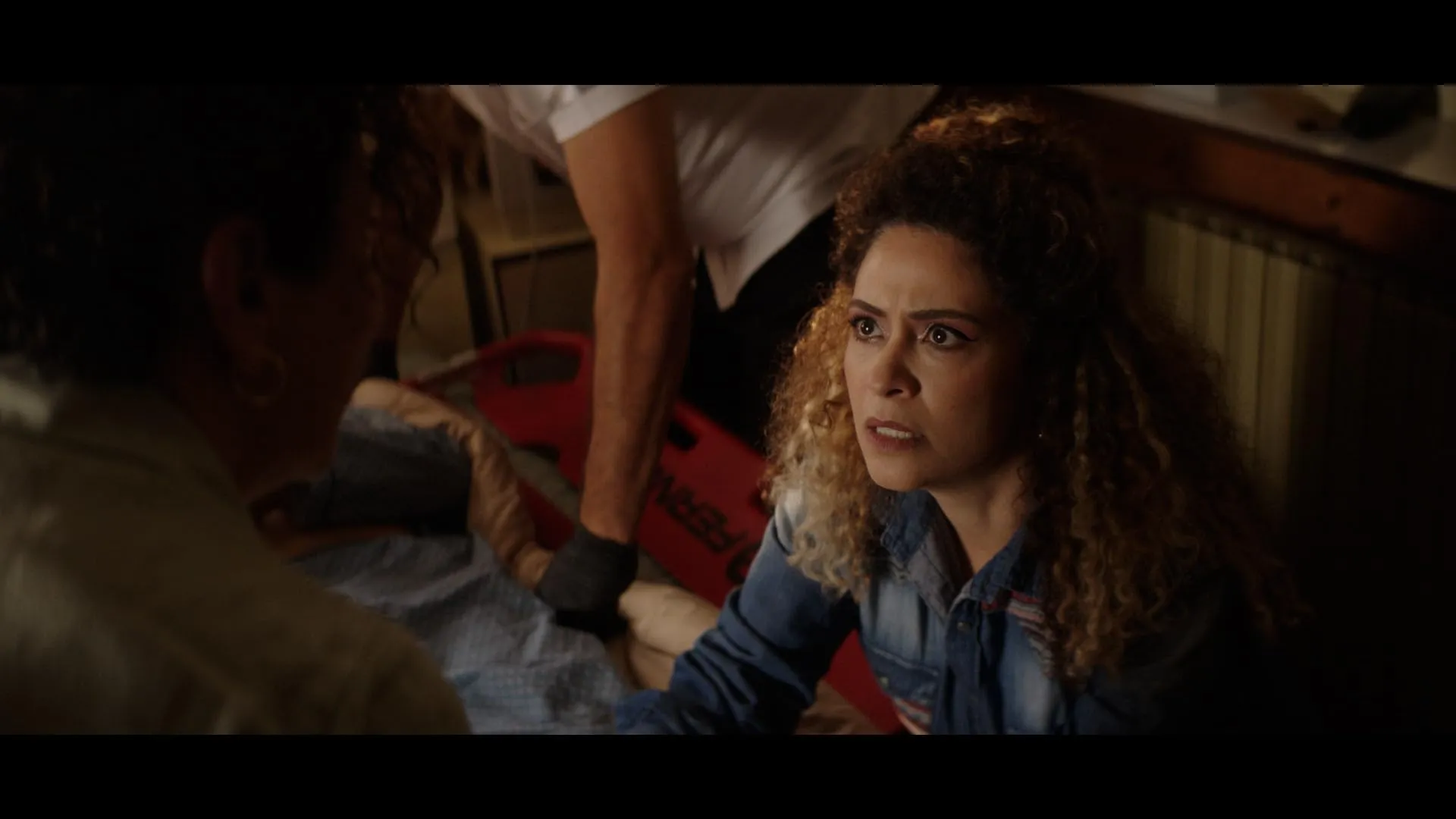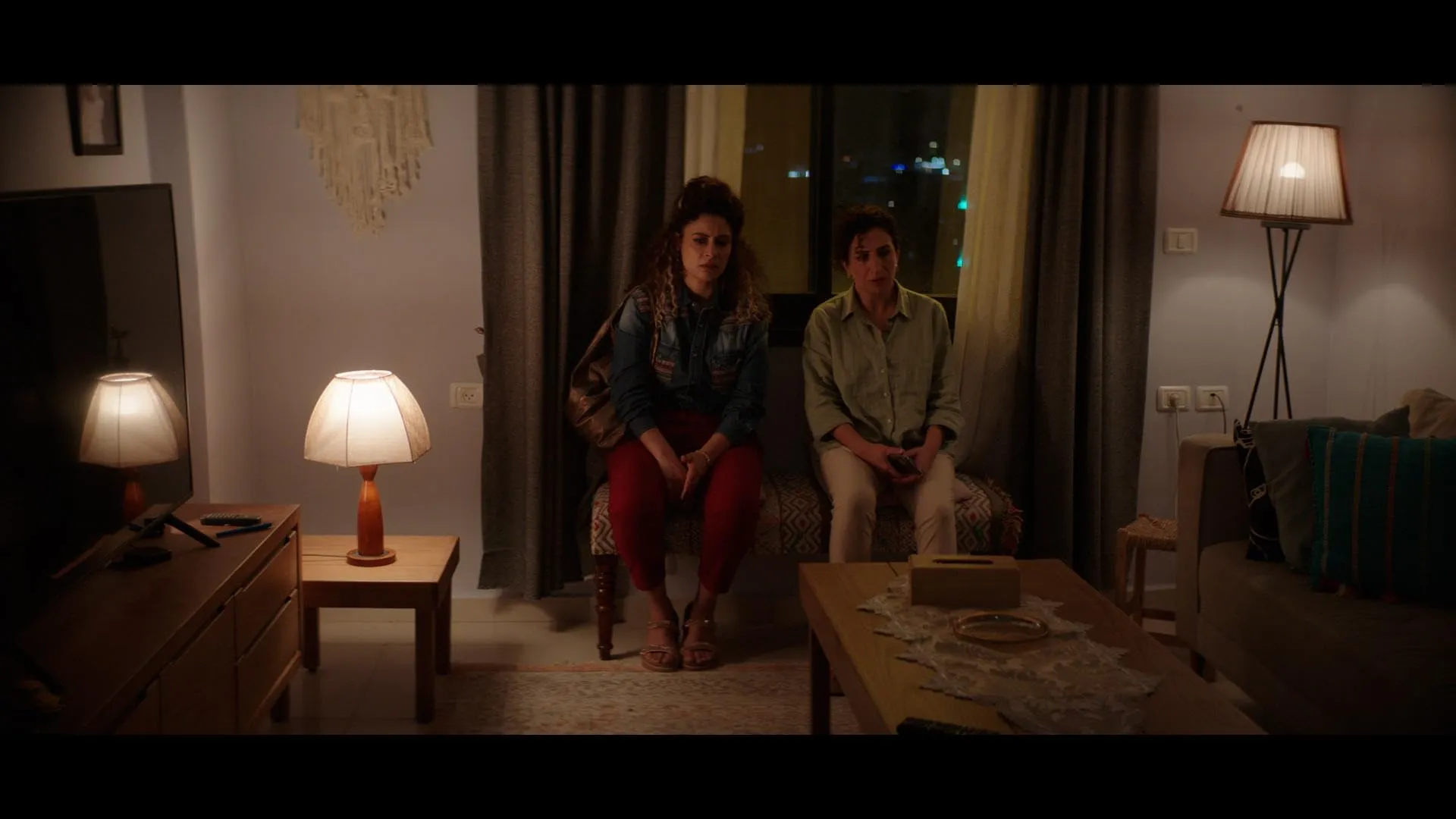In the movie Thank You for Banking with Us, an old man dies suddenly, and his estranged daughters, Mariam (Clara Khoury) and Noura (Yasmine Al Massri), rush to get their share of the fortune. The stakes are high: according to Islamic law, their brother Akram, who is not with them, should get a bigger share, even though the sisters are taking care of him.
As they rush to cash a check before telling anyone about their father’s passing, the tension rises, highlighting the absurdity of patriarchal structures. Each time they meet a male character, their struggle for control becomes even clearer and shows the societal barriers women face. Some of Mariam’s problems in her marriage and Noura’s sacrifices make their goal more complicated by tying personal problems to their fight to become financially independent.
Abbas’s film asks viewers to think about the complexities of inheritance in terms of money and feelings in this microcosm of larger injustices. Can the sisters recover their narrative in a world where family love frequently feels transactional?
Sisters in Struggle: A Character Exploration
As a stressed-out mother of two navigating the rough seas of a cheating spouse, Mariam (Clara Khoury) embodies the weight of familial duty. Her character is full of resignation, which reflects many women’s lives in patriarchal societies. In the film, she is portrayed as the ideal caregiver, frequently torn between the chaos at home (her son is always on his phone, and her husband doesn’t pay attention to her) and the societal expectations that define her role.
Is Mariam’s arc changing from passive acceptance to a growing sense of empowerment as the story continues? The film’s subtle critique of societal norms is highlighted by this change, suggesting that even the most established characters can find their voice in the face of hardship.
On the other hand, Noura (Yasmine Al Massri) embodies a more forward-thinking outlook. She has shown resilience and realism in her work as a beauty technician and caregiver for their father. Her character swings back and forth between wanting to help others and wanting to get ahead. This tension gives her reasons more depth.
While Mariam struggles with being unhappy at home, Noura struggles with the choices she has to make when her work goals and not being married clash with her family duties. Their relationship is a study in contrasts: Noura’s pragmatism catalyzes change, while Mariam seems bound to custom. The complexities of sisterhood under pressure are highlighted by their dynamic, which swings between fighting and real unity.
The sisters’ trip is even more difficult because their brother Akram and Mariam’s husband are with them. Akram, who lives far away and doesn’t care about the sisters, represents the patriarchal arrogance that they have to deal with. Although he isn’t in the film for most of it, his character stands in for the societal problems women face.
On the other hand, Mariam’s husband is a symbol of personal betrayal because he doesn’t care about her problems. Although they are not as fully developed, these supporting characters are important in highlighting the sisters’ plight and the main themes of gender inequality. The interaction between these characters deepens the narrative by offering a look at how deeply ingrained societal structures affect personal relationships and individual agency.
As a result, Thank You for Banking with Us is more than just a story about two sisters; it also asks viewers to reflect on the societal structures that mold women’s lives and to consider the influences of family and culture.
Unpacking Themes: Patriarchy and Sisterhood
Through the lens of Islamic inheritance laws, Thank You for Banking with Us serves as a moving examination of the deeply ingrained patriarchal structures that permeate Palestinian society. The film shows that these rules favor male heirs and make women less important than men in family affairs.
This systemic inequality catalyzes Mariam and Noura’s desperate journey, not just as a backdrop. The film cleverly criticizes the outdated cultural norms that make the sisters’ independence dependent on getting male approval. At the same time, they deal with the absurdity of needing their dead father’s male approval for financial transactions.
This portrayal has a strong emotional impact because it reflects larger societal problems women face worldwide. The rules against wills and inheritance serve as examples of a society that systematically deprives women of their rights, reinforcing the idea that, for many, financial independence is still a distant dream. As the film shows the sisters navigating this maze of red tape, it shows how these laws affect their current financial needs, who they are, and their sense of control.
However, the film highlights sisterhood as a potent means of defiance within this oppressive framework. Mariam and Noura’s friendship goes from being a little distant to a strong partnership, showing how important it is for women to stick together when faced with societal problems. Their dry humor and teasing of each other in conversation hide a deeper bond they’ve formed through shared problems. This dynamic offers a welcome alternative to the usual narrative of women in crisis—they are not just victims but change agents who use their wit and resilience for empowerment.
The sisters’ journey shows how personal problems can lead to group action, acting as a microcosm of women’s empowerment. They demonstrate the transforming power of sisterhood as they deal with societal absurdities together. In a world where women are often pitted against each other, Thank You for Banking with Us offers a narrative of unity and strength, suggesting that true empowerment comes from individual success and the connections we make along the way. This film encourages viewers to reflect on the larger implications of their bond.
The film is positioned as both a commentary on gender inequality and a celebration of the resilience found in female bonds by this examination of sisterhood in contrast to the harsh realities of patriarchal tyranny. The potential cultural effect is significant as it promotes discussion of women’s rights and the urgent need for reform in societal structures that continue to marginalize them.
Tone and Style: A Dance of Humor and Seriousness
Glad you chose to bank with us. Handles the tricky mix between humor and the seriousness of its themes with great skill. The film uses a dry, almost sarcastic wit that serves as a lens through which to examine serious societal problems and provide comic relief.
For instance, the sisters’ arguments, frequently laced with playful jabs, go beyond simple sibling rivalry, offering a nuanced commentary on their shared plight. In a world full of patriarchal abuse, this humor becomes a way to deal with things.
The film’s skill at keeping the emotional weight while adding humor is especially impressive. As Mariam and Noura deal with the absurdities of their legal and family problems, their banter makes the narrative more enjoyable without making their pain seem less important. In a memorable conversation, Mariam jokes that she will wait until Palestine is free before getting a divorce. This line makes people laugh but also speaks to the painful truth of many women’s lives. Such moments remind people that humor can bring light to even the darkest parts of life, making it a useful tool for interaction and reflection.
The film moves quickly on purpose to show how the sisters are racing against time. This sense of urgency moves the narrative along, keeping viewers interested in their plight. Every scene is carefully put together, alternating between moments of tension and lighter moments to reflect their goal’s chaotic yet humorous nature.
The tight structure of Abbas’s storytelling style shows character depth while keeping the story moving forward. The choice to have the story take place over a single night makes their struggle feel more real and gives us a glimpse into their personal and broad lives. The film does this by inviting viewers into a unique and common world, a microcosm of larger societal problems woven into the fabric of daily life. This narrative style is successful because it can connect with readers on many levels, serving as both a personal story and a critique of societal norms, making it a valuable text for debate and reflection.
Cinematography and Design: Crafting a Visual Narrative
There is a mix of tension and closeness in every scene of Thank You for Banking with Us, which is largely created by the film’s cinematography. The film mostly takes place at night, which captures the stillness of Ramallah’s streets, where long shadows echo the characters’ battles.
This choice of putting the story at night is a metaphor for the danger and uncertainty just below the surface of their seemingly normal lives. Few but evocative lights create a sense of claustrophobia that mirrors how the sisters feel trapped in patriarchal settings.
The close-up and shaky camera work gives the film a sense of urgency that pulls viewers into the sisters’ desperate search. This immersive method makes their plight more palpable and enables a direct link to their emotional states.
With its careful attention to detail, the production design and cinematography go well. Mariam’s cluttered home reflects her crazy life, while Noura’s salon serves as a place of solace and routine, highlighting her dual roles as a caregiver and an independent woman. The rich textures of each location enhance a narrative deeply rooted in its cultural context.
The sisters’ simple but bright clothes and the stark contrasts of city life, among other design choices, improve the storytelling. They create a visual language that speaks to larger themes of gender and societal expectations, reinforcing the film’s investigation of the lives of women in modern-day Palestine. In this way, the aesthetics become a crucial part of the storytelling rather than just a backdrop, enhancing the emotional impact of the sisters’ adventure.
Cultural Context: A Reflection of Palestinian Realities
Thank You for Banking with Us fills an important void in the larger canon of Palestinian cinema, which has long been a place to explore identity, struggle, and the complexities of everyday life under occupation. In a genre that is typically dominated by male narratives, this film raises the level of discussion by putting women’s stories at the center.
It fits in with a growing body of work that aims to amplify female voices in Palestinian storytelling by exploring themes of gender inequality and familial duty. Think of it as a much-needed feminist awakening in a genre usually focused on larger geopolitical battles.
The film’s examination of inheritance laws and patriarchal oppression has resulted in a significant cultural shift in the area. It entertains and teaches, making audiences reflect on the systemic barriers that women face in both personal and societal contexts.
The film is set against the sociopolitical backdrop of contemporary Palestine and deals with issues relevant to people’s lives. The sisters’ fight for financial independence is similar to the larger fight for gender equality in a society where standard roles are being questioned increasingly. The film serves as a powerful reminder of the intersecting struggles of gender and nationalism as Palestinians struggle with identity, survival, and resistance issues.
In this way, Thank You for Banking with Us not only reflects the current state of Palestinian society but also participates in important worldwide conversations about women’s rights, economic independence, and changing family roles. The film could have a big effect on culture, and this multifaceted approach makes it a great conversation starter both locally and internationally.
Conclusion: A Complex Tapestry of Strengths and Weaknesses
Thank You for Banking with Us is a compelling look at gender and societal norms that expertly combines humor and serious themes. Its strengths are its poignant portrayal of sisterhood and rich character development, offering a new lens on Palestinian narratives.
One could argue, though, that some supporting characters aren’t given enough attention, which takes away from the overall effect a little.
However, the film makes significant additions to cinema and societal discourse by questioning conventional narratives and starting important discussions about women’s rights and empowerment in modern society. It will have an impact on culture that will last long after the movie is over.
The Review
Thank You for Banking with Us
The film Thank You for Banking with Us is moving and wise, and it expertly weaves humor into the serious issues of gender inequality in Palestinian society. While criticizing patriarchal structures, it has strong character dynamics and an interesting narrative emphasizing sisterhood's value. Despite some underdeveloped supporting characters, the film's cultural effect is undeniable, making it an important addition to the conversation about women's rights. It's a refreshing and thought-provoking movie experience that makes you reflect on the complexities of women's empowerment.
PROS
- The relationship between the sisters is well-crafted and relatable.
- Effectively blends comedic moments with serious themes, enhancing emotional depth.
- Addresses contemporary issues of gender inequality in Palestinian society.
- Nighttime settings create a tense yet intimate atmosphere.
- Uses personal struggles to reflect broader societal issues.
CONS
- Some secondary characters lack depth, which detracts from the overall narrative.
- Certain scenes may feel drawn out, affecting the film's momentum.
- Focus on a specific familial struggle might not resonate universally.







































